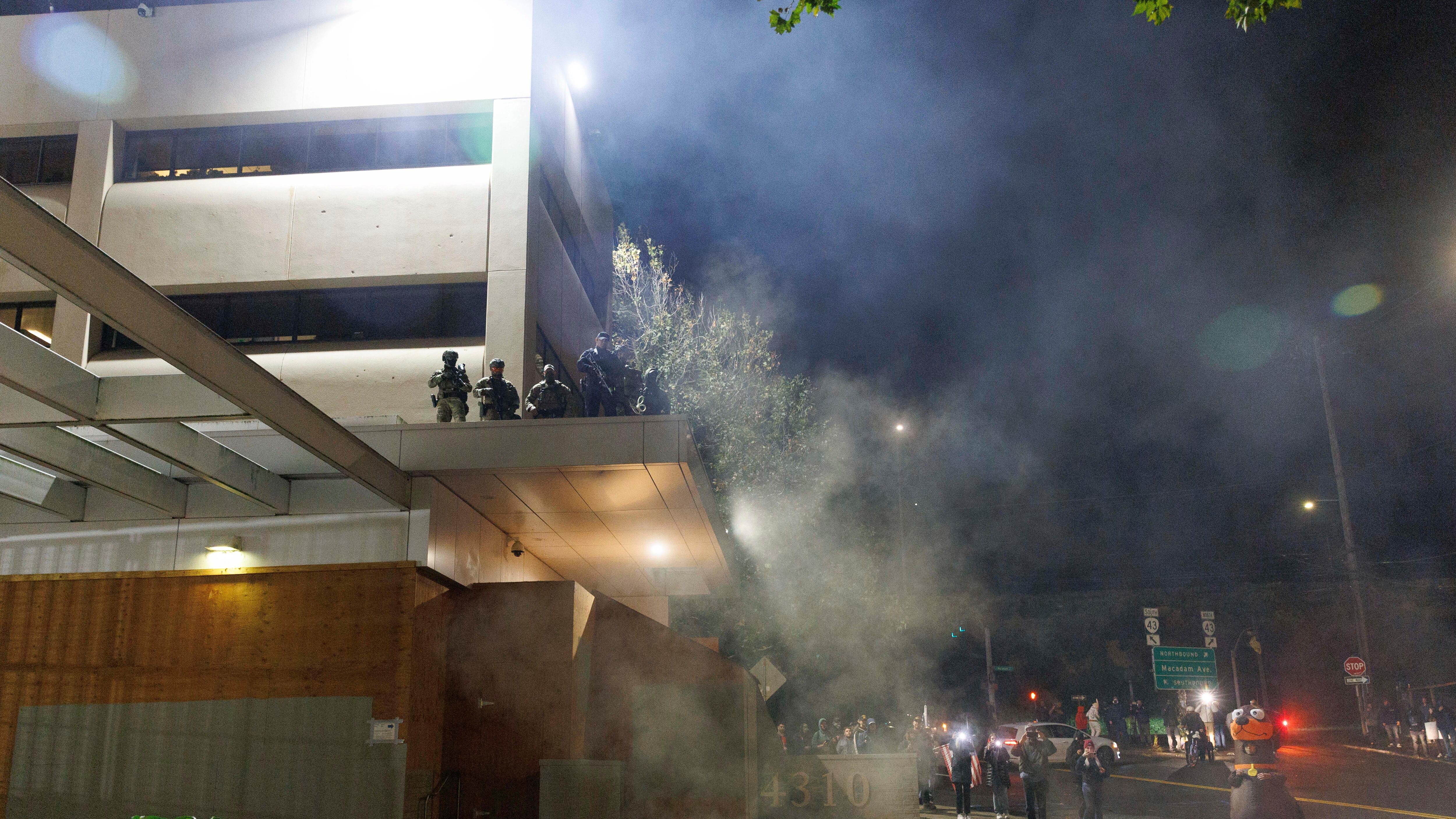A federal judge has again been forced to consider whether the Trump administration directly disobeyed her in its response to her Oct. 4 order temporarily blocking the deployment of federalized Oregon National Guard members in the city.
The judge, Karin J. Immergut, first wondered this on Oct. 5 when the administration, in what she said appeared to be in direct contravention of the previous day’s order, mobilized National Guard members from other states to the city, prompting her to issue a broader restraining order.
But the Trump administration admitted Wednesday morning to yet another instance in which it may have disobeyed the judge’s order, several hours after it was first published.
Asked about the matter, a spokesperson for U.S. Northern Command said, “We cannot comment on ongoing litigation.”
On the morning of Saturday, Oct. 4, Portlanders were awaiting Immergut’s ruling on whether to issue an emergency block on the deployment of Oregon National Guard members to the city.
Meanwhile, behind the scenes, the federalized guard members were in motion, preparing for the mission. Some were converging on local military bases. And at around 11:30 am Oct. 4, according to a military document that turned up in subsequent litigation reviewed by WW, a small advance group of nine soldiers had arrived in the U.S. Immigration Customs and Enforcement facility itself.
By around noon that day, the document says, those troops “assumed their first support mission.”
A few hours later, at 3:40 pm, Immergut would issue a temporary restraining order blocking that mission.
But the troops, a military document indicates, remained at the facility until early Oct. 5—more than eight hours after the restraining order was issued.
A government attorney admitted as much to Immergut Wednesday morning, as a trial got under way to help the judge determine whether to issue a more durable block on the deployment.
The government attorney explained to the judge that it took time for the feds to issue the information about the temporary restraining order to the people on the ground.
Whether the lingering presence of the troops constituted contempt of court or was in direct violation of her temporary restraining order, Immergut responded, would be discussed later: She had a trial to proceed with.
After opening statements, attorneys for the city and the feds jumped into opening statements.
“This case is about a simple proposition, as this court well knows,” said Caroline Turco for the city of Portland. “This is a nation of constitutional law.” She added that her team was confident that at the end of this case, “the court will find that the city does not need the National Guard and the federal government does not need the National Guard.”
Eric Hamilton offered the rejoinder for the Trump administration. “For months, agitators have used violence and threatened violence against the men and women who serve their country by working for the Department of Homeland Security here in Oregon,” he said. Under the relevant federal law, the president can federalize the National Guard under certain conditions, including when he could not execute the laws or there was a danger of rebellion.
Hamilton says both of these things were true. And yet, he added, it is not for the court to determine whether these things were “actually” true; Congress, he argued, left such judgments to the president.
Instead, Hamilton said, it is for the court to decide whether the president, in his decision making, has made a plausible “assessment of the facts and law within a range of honest judgment.”
If the testimony from local law enforcement officers that formed the bulk of the first day at trial was meant to provide the factual basis on which the judge could make that call, the discussion also served as a referendum on the quality of the police work that local and federal officers have been doing during the protests outside the ICE facility in South Portland.
The feds contend that local law enforcement has provided inadequate help, failing to intervene to clear protesters from ICE’s driveway, for example—claims they said bolstered the argument that the troops need to come in to do the job.
From the stand, though, local law enforcement officers made a consistent case: The protests they have been observing and occasionally intervening in outside the ICE building have been relatively tame and lawful. They also contended that their federal counterparts have not infrequently escalated tensions unnecessarily, at times even deploying munitions in a manner that is disproportionate to the “crime or violence” of the assembled demonstrators.
The testimonies tracked how protests grew intense in June, and then became tamer into late September, when tensions rose again after Trump announced he would call in the troops.
But the relevant history clearly went back farther. Portland’s history of protests and riots following the murder of George Floyd in 2020 shaped the image of a city in the minds of many around the nation—including the president himself.
Franz Schoening, a commander with the Portland Police Bureau was there—he was a team commander during the protests in 2020.
From the stand Wednesday, he was asked how he would compare the protests at ICE from June until today to the downtown unrest then.
“I’d say there is no comparison,” he said. “The level of violence, criminal conduct that we saw in 2020 was markedly different.”

